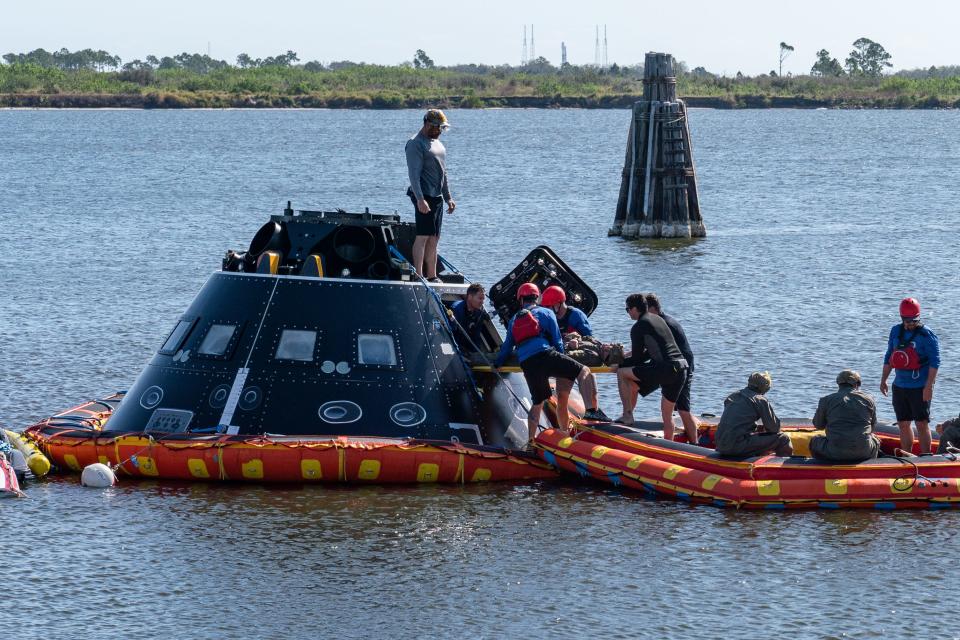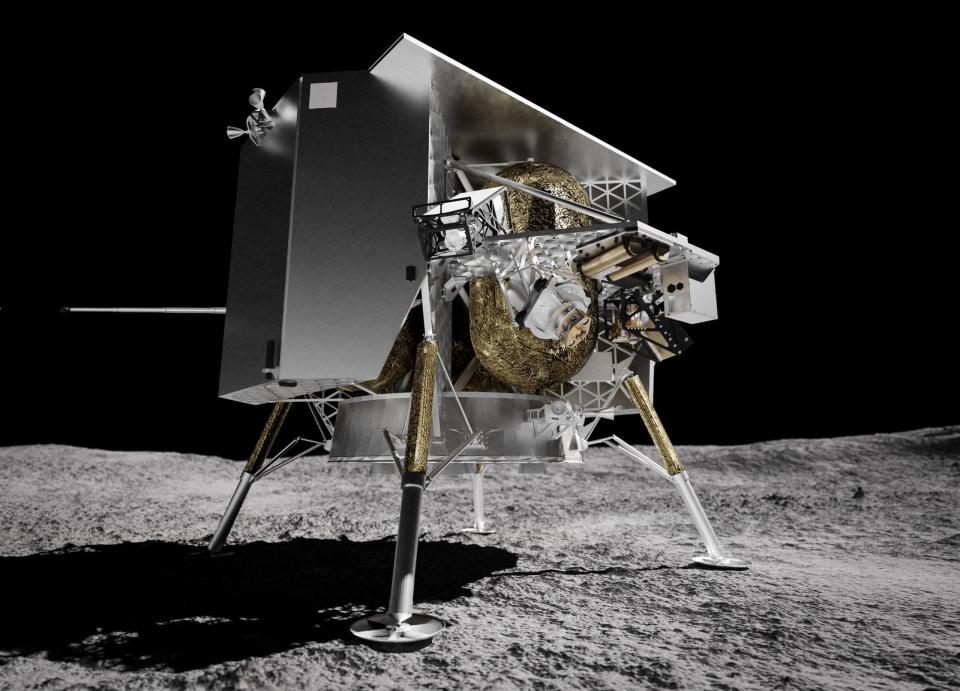NASA pushes back Artemis II astronaut moon mission to September 2025, citing heat shield
NASA is pushing back the target date of the Artemis II mission — which will propel four astronauts on a journey around the moon — from this November to September 2025 while engineers study an unexpected loss of charred material from the Orion capsule's heat shield from Artemis I.
"Now, this heat shield is an ablative material. It is supposed to char. But what we were not expecting was pieces of that char to be liberated from the vehicle," Amit Kshatriya, deputy associate administrator of NASA's Moon to Mars Program, said during a Tuesday press conference.
"And so, we need to make sure we understand the transport and debris-transport phenomena that caused that. We have spent the bulk of 2023 investigating that, in facilities across the agency as well as with help from the DOD," Kshatriya said.
Artemis I generated worldwide headlines by launching in November 2022 from Kennedy Space Center as the first test flight of NASA's Space Launch System mega-rocket, which is designed for future missions to the moon and Mars. The Artemis program also generated headlines for its high price tag, with costs expected to reach $86 billion through 2025, NASA's Inspector General reported last year.
After 25? days and two lunar fly-bys, the uncrewed Orion spacecraft made a fiery re-entry into Earth's atmosphere and splashed down in December 2022 via parachute in the Pacific Ocean. Engineers expected the capsule's heat shield to reach a scorching 5,000 degrees — or twice the temperature of molten lava.
Artemis III pushed to September 2026
During Tuesday's press conference, NASA Administrator Bill Nelson also announced Artemis III is now pushed back to September 2026. That mission will send astronauts for a lunar surface landing to explore near the moon's south pole.
Nelson told reporters, "safety is our top priority."
"We're in a golden era of exploration. And this time, we are going back to the moon in order to be able to learn, to live, to create and to invent, in order that eventually we can go to Mars," Nelson said.

"And the science is going to help us unlock the secrets of the formation of our solar system, including the secrets of our own planet. In the process (of going) back to the moon, we're going to develop new technologies. We're going to develop new propulsion to go to Mars," he said.
Kshatriya said he hopes NASA identifies the root cause of the heat shield charring this spring. He said the Orion capsule charring would not have impacted astronauts, had any been on board. Nor would there have been any excessive structural heating or problems with splashdown guidance systems.
In addition to heat shield study, a NASA press release said Orion teams are "troubleshooting a battery issue and addressing challenges with a circuitry component responsible for air ventilation and temperature control."
Peregrine moon landing abandoned

Meanwhile, Astrobotic teams have abandoned hopes of settling the Peregrine lunar lander on the moon's surface on Feb. 23 — a propellant leak has swiftly short-circuited its mission.
United Launch Alliance's new Vulcan rocket lifted Peregrine into orbit early Monday morning during its historic maiden flight from Cape Canaveral Space Force Station. The robotic lander is carrying five NASA scientific payloads, among other experiments and instrumentation.
Shortly after stage separation, Astrobotic reported malfunctions. By 12:17 p.m. Tuesday, the company announced the moon lander was in a stable operating mode, and technicians were working payload and spacecraft tests and checkouts. But the spacecraft was projected to run out of fuel within about 40 hours.
“Given the propellant leak, there is, unfortunately, no chance of a soft landing on the Moon,” Astrobotic said in a statement.
“However, we do still have enough propellant to continue to operate the vehicle as a spacecraft,” the statement said.
For the latest launch schedule updates from Cape Canaveral Space Force Station and NASA's Kennedy Space Center, visit floridatoday.com/launchschedule.
Rick Neale is a Space Reporter at FLORIDA TODAY (for more of his stories, click here.) Contact Neale at 321-242-3638 or [email protected]. Twitter/X: @RickNeale1
This article originally appeared on Florida Today: NASA heat shield issue delays Artemis II astronaut moon launch to 2025
